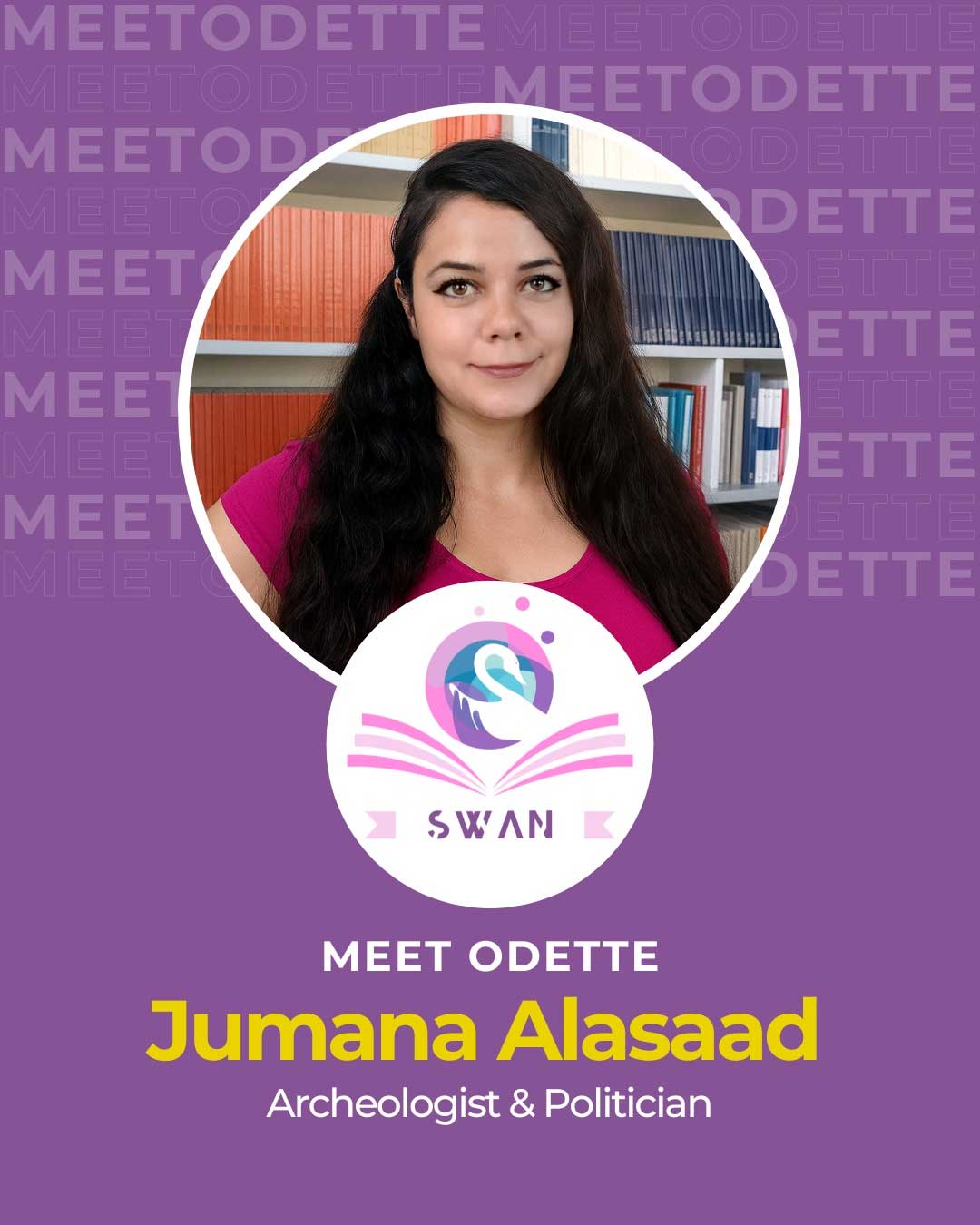Meet Odette with Jumana Al-Asaad: A Deep Discussion to Strengthen Political Awareness
The session took place on Saturday, February 25, lasting approximately two hours and attended by around 17 network members.
The atmosphere was intellectually engaging and enriched political awareness. The discussion focused on Germany’s political parties ahead of the recent parliamentary elections. Jumana provided a detailed analysis of various party ideologies, highlighting what distinguishes each one. The conversation also addressed the impact of party policies on critical issues such as immigration and integration, and how political decisions resonate internationally—particularly in the context of the Ukraine–Russia war and the role of U.S. policies in global conflicts. Dr. Ellen Hillal, SWAN’s director, contributed valuable insights regarding the German parties discussed during the session, emphasizing their connection to academic and social issues and the importance of understanding these policies, as their influence on Germany’s broader political landscape warrants careful assessment.
The atmosphere was intellectually engaging and enriched political awareness. The discussion focused on Germany’s political parties ahead of the recent parliamentary elections. Jumana provided a detailed analysis of various party ideologies, highlighting what distinguishes each one. The conversation also addressed the impact of party policies on critical issues such as immigration and integration, and how political decisions resonate internationally—particularly in the context of the Ukraine–Russia war and the role of U.S. policies in global conflicts. Dr. Ellen Hillal, SWAN’s director, contributed valuable insights regarding the German parties discussed during the session, emphasizing their connection to academic and social issues and the importance of understanding these policies, as their influence on Germany’s broader political landscape warrants careful assessment.


A Deep Discussion to Strengthen Political Awareness
This meeting was held at a pivotal moment just one week before Germany’s parliamentary elections offering a timely opportunity to analyse the political scene and discuss the outcomes’ implications on immigration and integration policies. These topics directly affect Syrian academics living in Germany.
The session was rich with political analysis and provided an open space for participants to engage with ongoing political developments and apply those insights within academic and societal research contexts. Far from being a mere exchange of information, this meeting was a genuine opportunity to understand how political decisions influence academic and social life. It reflected SWAN’s commitment to empowering academics to actively participate in political dialogue and grasp global trends shaping the future of scholarly work and academic communities. Importantly, the discussion was not limited to Syrian academics based in Germany; rather it served as an intellectual and analytical reference point for expanding political awareness among researchers, particularly those interested in understanding European policies and their implications on international issues. Through examining German political party methodologies and their effects on critical issues, participants gained deeper insight into how political decisions are formed and what these shifts may mean for Syrian communities outside Germany.
The session was rich with political analysis and provided an open space for participants to engage with ongoing political developments and apply those insights within academic and societal research contexts. Far from being a mere exchange of information, this meeting was a genuine opportunity to understand how political decisions influence academic and social life. It reflected SWAN’s commitment to empowering academics to actively participate in political dialogue and grasp global trends shaping the future of scholarly work and academic communities. Importantly, the discussion was not limited to Syrian academics based in Germany; rather it served as an intellectual and analytical reference point for expanding political awareness among researchers, particularly those interested in understanding European policies and their implications on international issues. Through examining German political party methodologies and their effects on critical issues, participants gained deeper insight into how political decisions are formed and what these shifts may mean for Syrian communities outside Germany.